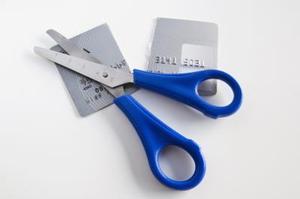Got Bad Credit? 3 Finance Tips on How to Get a Home Loan
Tip #1: Talk to an Expert

“The first step in getting a mortgage, regardless of your credit score, is talking to an experienced and knowledgeable mortgage professional,” explains Minneapolis residential and commercial mortgage expert Josh Manier. “After pulling your credit report, that begins the process of finding a mortgage that will work for you right now or creating a plan so that you can qualify in the near future.” Most lending professionals understand both how credit scores work and what lenders want to see both in terms of a score and in terms of the details of your actual credit situation. Like doctors, they’ve also seen it all before, so you can be comfortable talking with them. “Although your lender may give you a specific strategy, there are a few things you can start doing right now,” adds Manier.
Tip #2: Pay on Time
Your credit score weights recent activity more than older activity. One way to improve your score is to pay all of your bills on time going forward. Doing this will help to push your late payments back and show that you’ve turned over a new leaf. If you have accounts on which you’re late, finding the money to make them current will also improve your score. As you’re doing this, remember that you probably won’t have to get to a perfect score – many home buyers are able to get a mortgage with a score in the mid 600’s.
Tip #3: Pay Down Balances
“Paying down your balance helps in two ways,” explains Manier. “It lowers the rate at which you use your credit cards, and it also reduces your total payment load and might let you qualify for a bigger mortgage.” One big component of your credit score is your so-called utilization rate. Lenders like to see that you have credit available to you, but they also like to see that you’re not using very much of it. Given that carrying a balance can also be expensive given the high interest rates that many credit cards charge, it may even make sense to tap into your savings to pay your balance down. Ultimately, getting your utilization under 30 percent should help your score.
Bonus Tip: Don’t Change Anything–Usually
Unless your mortgage lender advises you differently, you’ll probably be best off if you avoid making any major changes to your credit. Closing accounts decreases the total amount of credit that you have available and has the unintended consequence of increasing your utilization and lowering your score. While opening a new account usually won’t do a lot of damage to your score, opening multiples can be a sign that you’re in trouble, and it can therefore make your score drop meaningfully. The one exception to this is if you don’t have enough credit: “Sometimes, I advise some of my clients to increase their credit score by adding a new credit account and decreasing their overall utilization, but not usually,” explains Manier. If you’re in this situation, your lender should let you know, though.
Quicken has made the material on this blog available for informational purposes only. Use of this website constitutes agreement to our Terms of Use and Privacy Policy. Quicken does not offer advisory or brokerage services, does not recommend the purchase or sale of any particular securities or other investments, and does not offer tax advice. For any such advice, please consult a professional.


